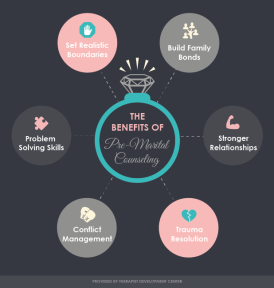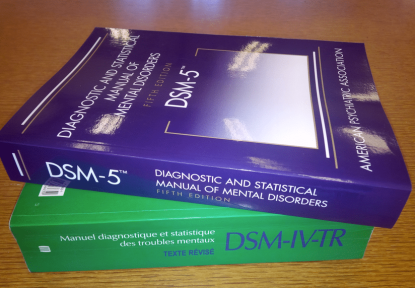Professional Development
Career Outlook for Marriage and Family Therapists
Conflicts within a family are a regular occurrence, and can sometimes require outside help, such as a mediator who can give proper advice to help mend what may be on the verge of breaking. Some people find joy in defusing relationship problems and helping others see what they can do to change. If you feel that you are among these people, becoming a marriage and family therapist may be the right path for you. Marriage and Family Therapy is among the most rewarding professional careers. Assisting others and making lives a little bit brighter every day, is a gift that some of the most kind and selfless people possess. If you feel you are among this gifted group, you may have the right mindset to become a marriage and family therapist. What is involved in becoming a licensed marriage and family therapist? Let’s start with the job description: Simply put, a marriage and family therapist is responsible for educating family members so they can resolve their own conflicts within marriage and family. A therapist will use his or her knowledge of family theory and apply techniques and principles to help struggling couples and families find a proper resolution to help them sustain healthy relationships. This type of professional should have an advanced degree and be comfortable being self-employed. Very few will work with social service organizations. What type of projected growth to expect: The Bureau of Labor Statistics has reported that there were approximately 33,700 of this type of therapist who were employed in the U.S. in 2014. An increase of 15% was projected over the years of 2014-2024. That is an increase of 5,000 jobs by the end of the year 2024. What are the factors of growth: Health insurance plays a big role in the career growth of a marriage and family therapist. Health insurance is now required to cover mental health counseling services, which means more people are taking advantage of this service. How you can improve your prospects: There is a very small number of marriage and family therapist in rural areas of the United States, so these areas offer the best prospects for employment. All professionals must hold a license in the state where they practice. Certification and licenses will boost your career prospects. What to expect from your salary: This goes back to the findings of the Bureau of Labor Statistics of 2014. They have reported that a marriage and family therapist earned an on average salary of $48,000 annually. However, annual wages for the low 10% was $30,510, and the high 10% was $78,920. Employers that paid the highest wages were both through the government and religious organizations. If you feel like becoming a marriage and family therapist is your true calling, you now understand what it takes and a general idea of what your career path will look like. You can find all the information you need to become the light for those who are suffering with their marital and family relationships on our website. Bringing loved ones back together is something that comes with a whole lot of patience and heart. Do you have what it takes?
Top 10 Reasons Teens Go To Therapy
Top 10 Reasons Teens Go to Therapy The teen years are difficult ones. For some, adolescence can be more difficult. Teenagers who are having a particularly hard time sometimes choose take advantage of therapy and find healthy ways to cope with their various troubles and circumstances. Of all the reasons juveniles go to therapy, below are the most common.
Benefits of Pre-Marital Counseling
Benefits of Pre-Marital Counseling They’re excited. They’re in love and the day is quickly approaching when they marry the man/woman of their dreams. The next phase in life looks great. Most soon-to-be couples ask ‘What can possibly go wrong when you finally get to spend the rest of your days with your special someone?’ Why Few People Seek Pre-Marital Counseling Marriage is a big commitment, yet few engaged couples outside of religious communities go to pre-marital counseling. While most faith communities require couples to attend pre-marital counseling, couples with no faith background shy away from counseling. This has to do with fear. They don’t want to put a kink in a blossoming relationship. Engaged couples can be naïve and believe they can properly sort out their differences later. How Pre-Marital Counseling Can Help The benefits of pre-marital counseling, however, far outweigh the risks of addressing potential conflict before marriage. As a marriage and family therapist (MFT), you can offer engaged couples valuable advice. You can give them an unbiased, honest, outsider’s perspective on each partner’s shortcomings and bring up issues that need to be discussed before marriage. No marriage, after all, will be without disagreements and conflict. Pre-marital counseling is a key component in ensuring that couples will have marriages that last. You can address the communication and conflict resolution issues that lead to divorce and prepare them with a plan and solution for dealing with these inevitabilities.
DSM 5 Changes: How the DSM 5 compares to the DSM IV
What's new in the field of mental health? The DSM 5! And while we all transition from the DSM IV to the DSM 5, it is good to take a look at what has changed. If you are preparing for the Social Work Exams or MFT Exams, the ASWB, the BBS, and the AAMTRB have all announced that the DSM 5 will not be tested until 2015.
5 Things Every Social Work Graduate Should Know
Have you received absolutely no training as far as planning your social work career is concerned? If this is the case then you are not alone. I had the idea of creating this blog post after speaking to an MSW who was about to graduate from her program at USC, here in Los Angeles where I live, and while I was talking to her it became clear that while she had gotten good clinical training in her graduate program, she had no training in how to plan for her own career. One of the things we aim to do at my company, the Therapist Development Center, besides helping people pass their social work exams, is to actually provide support to therapists throughout their careers. By support I mean giving essential information that is very practical – practical advice. So in this post I want to go through some of the key things that I wish I had known and have learned since I have been out in the field for the past almost 10 years now. The following five points are things I think every social worker should know when they graduate from their MSW program.









